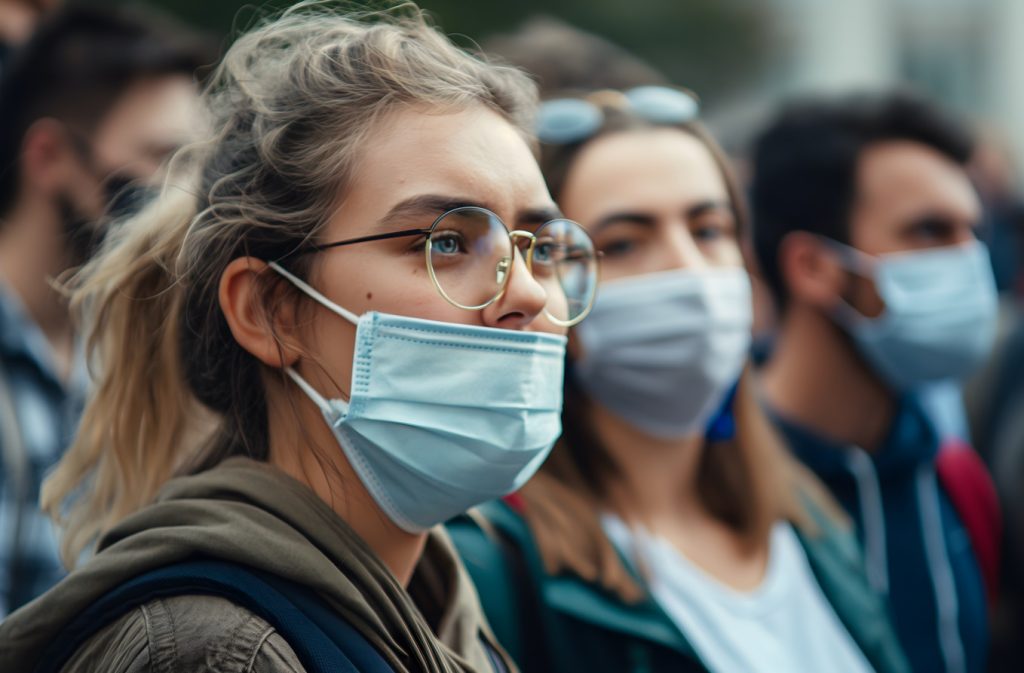 Rax Qiu, Adobe Stock Images
Rax Qiu, Adobe Stock Images In the wake of last year’s pro-Hamas campus protests, universities around the country are revising their facilities-use policies, as well as other “time, place, and manner” restrictions on campus protests. Early last month, Virginia Commonwealth University adopted a new interim policy on “Concealment of Identity.” VCU’s move may be a novel approach to confronting masked campus protests.
The policy reads:
Any individual who is present on University Property or attending a University Event and is wearing a mask, hood, or other covering whereby a substantial portion of the face is hidden or covered to conceal the identity of the wearer, must present an Identification Document.
It also specifies:
University students, employees, authorized affiliates, and public members in violation of this policy, and/or the Commonwealth of Virginia laws may be detained or arrested by law enforcement and or trespassed from university property.
According to a university-provided FAQ website, the policy’s purpose is to “bring VCU policy into alignment with current Virginia law” and “address situations where individuals are on campus with the intent to conceal their identity from university officials.”
VCU’s policy is arguably a stronger deterrent to protest-related policy violations. VCU’s approach differs slightly from North Carolina’s law, which was amended in June. That law, which goes back to 1953, states that “no person or persons shall in this State, while wearing any mask, hood or device whereby the person, face or voice is disguised so as to conceal the identity of the wearer, enter, or appear upon or within the public property of any municipality or county of the State.”
Wearing masks for health purposes is an exemption to the law; however, a UNC School of Government resource explains,
When the health exemption was added to the law in 2020, a related provision was added to require a person wearing a mask for the purpose of ensuring the health or safety of the wearer to remove the mask upon the request of a law enforcement officer during a traffic stop, or when the officer has reasonable suspicion or probable cause during a criminal investigation.
The difference between N.C. law and VCU policy is the method of identification. N.C. law mandates only that mask-wearers remove their masks if asked to do so by a law-enforcement officer. VCU mandates that mask-wearers must show ID to any “authorized university employee,” which includes both police officers and some university staff.
VCU’s policy is arguably a stronger deterrent to protest-related policy violations. For example, last year, pro-Hamas protesters at UNC-Chapel Hill disrupted both a speech by journalist Bari Weiss and a Board of Trustees meeting. In neither case did officers or university officials ask for identification despite the fact that “substantially interfer[ing] with the protected free expression rights of others” violates North Carolina’s Campus Free Speech Act. Challenging protesters at the first event may have prevented repeat offenses at the second.
North Carolina universities should consider adopting a similar policy if protests cross the line into violence or substantial disruption this fall.
Jenna A. Robinson is president of the James G. Martin Center for Academic Renewal.
